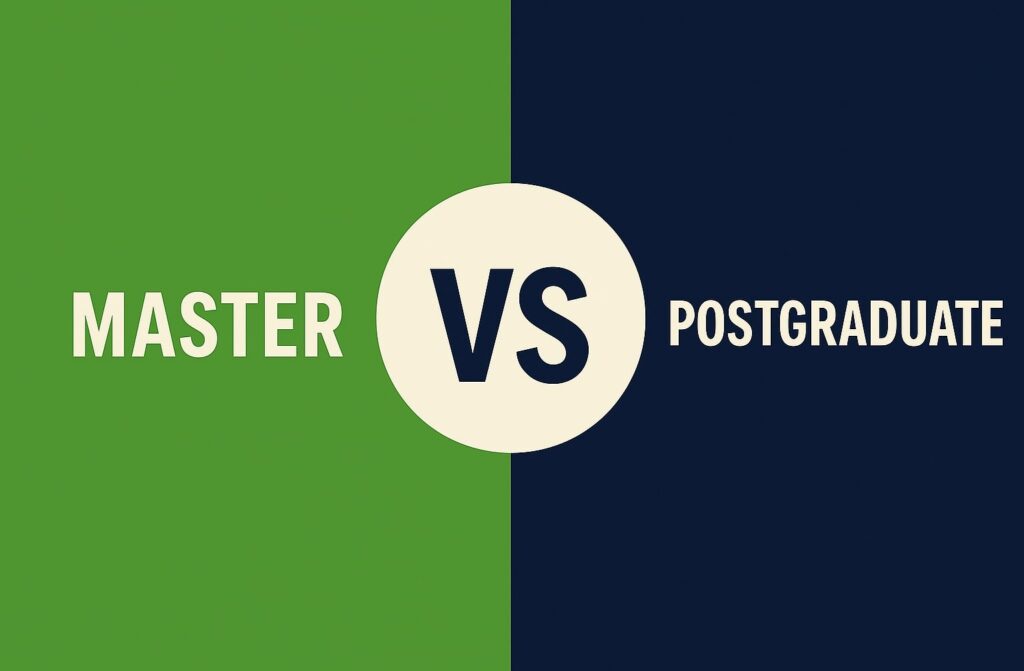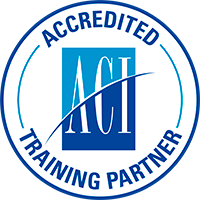
Differences Between Master’s and Postgraduate Programs
News
When seeking academic specialization or career advancement, it is common to encounter the terms “master’s” and “postgraduate.” However, although often used interchangeably, there are significant differences between the two concepts that are worth understanding before choosing the most suitable path.
Understanding the difference between a master’s and a postgraduate program is essential to define your academic and professional goals, especially in technical and high-demand sectors like aviation and airport management. Choosing the right program can make the difference between accessing better job opportunities or remaining stagnant in an increasingly competitive market.
In this article, we’ll answer the most frequently asked questions, detailing the characteristics of each option, their advantages, and the factors you should consider. Additionally, we’ll provide practical examples from the aviation sector and share useful information to help you make the best educational decision.
Índice
What is a Master’s Degree?
Definition and Objectives
A master’s degree is a graduate-level academic program that focuses on expanding and deepening knowledge in a specific area, providing both theoretical and practical tools to face the challenges of an increasingly specialized professional environment.
Only universities and business schools are authorized to issue master’s degrees. These institutions may be public or private.
The main objectives of a master’s program are:
• Professional specialization: Trains students in specific areas with market demand.
• Development of management skills: Ideal for leadership positions.
• Access to research and PhD programs: In the case of official master’s degrees.
• Improved employability and international projection.
For example, a master’s in Aeronautical Management prepares future executives of airports, airlines, and public organizations related to aviation.
Types of Master’s Degrees: Official and Proprietary
The main distinction lies in whether the program is official or proprietary, which affects its validity and the academic or professional rights it grants.
Official Master’s
Official master’s programs are recognized by an external entity, separate from the issuing university or business school.
There are two types of official master’s programs:
a) Official master’s from business schools officially recognized by CUALIFICAM, an entity created for the recognition of such programs. You can check these official programs at: https://cualificam.com/
b) Official master’s from universities recognized by ANECA, which is the equivalent of CUALIFICAM.
Characteristics of an official master’s degree:
• Duration between 60 and 120 ECTS credits (1 or 2 years).
• Grants access to PhD programs.
• Valid for applying to public service exams and working in public administration.
• Facilitates access to public scholarships and financial aid.
• Internationally recognized.
Check out an example of an official master’s on the ITAérea Aeronautical Business School website.
In the case of official university master’s programs, the theoretical component is quite high, as one of the requirements is that 40% of the teaching staff must hold PhDs in the subject.
For official master’s programs offered by business schools, a high percentage of employability is required.
Proprietary Master’s
On the other hand, proprietary master’s programs are designed and issued by a university or business school without the involvement of an external accreditation body.
Characteristics of a proprietary master’s degree:
• Flexibility in content and methodology.
• Focused on professional practice and market needs.
• Does not grant access to PhD programs or public service exams.
• Valued by companies in the private sector.
• Greater emphasis on networking and job placement.
Aviation example: The MBA in Aeronautical Management by ITAérea, designed in collaboration with experts and executives from airports and airlines.
Check out an example of a proprietary master’s on the ITAérea Aeronautical Business School website.
What is a Postgraduate Program?
Definition and Scope
The term “postgraduate” encompasses all academic training pursued after completing an undergraduate degree. In other words, a master’s degree is a type of postgraduate, but not all postgraduate programs are master’s degrees.
The goal is to deepen knowledge in specific areas or acquire technical skills to improve employability.
Postgraduate programs are ideal for those seeking quick, practical specialization without the need to complete a full master’s degree.
Types of Postgraduate Studies
Specialization Diplomas
These are short programs that provide knowledge and skills in a specific area of work.
Aviation example: A Specialization Diploma in Airport Security aimed at professionals in operations and risk management.
University Expert Courses
Programs focused on developing practical skills on a specific topic. They are usually taught by active professionals and tailored to real market needs.
Aviation example: Expert Course in Airport Infrastructure Planning.
Key Differences Between a Master’s and a Postgraduate Program
| Aspect | Master’s | Postgraduate (Diploma/Expert) |
| Duration | 1 to 2 years | 4 to 9 months |
| ECTS Credits | 60 to 120 | 15 to 30 |
| Academic Load | Comprehensive and in-depth | Focused and practical |
Admission Requirements
• Master’s: Requires an undergraduate degree (or equivalent).
• Postgraduate: Usually requires a degree, but some programs allow access with proven professional experience.
Recognition and Validity
• Official Master’s: Academic validity in Europe, access to PhD programs, and recognized in public exams.
• Proprietary master’s and postgraduate programs: Reputable in the job market and valued by private companies. They are fully valid.
Learning Objectives
• Master’s: In-depth understanding of a subject, development of management skills, and access to research.
• Postgraduate: Quick acquisition of practical, specific knowledge for direct application in the workplace.
Practical Examples in the Aviation Sector
Case 1 – Airline Executive
Juan wants to lead the international expansion of an airline. He needs management and global strategy skills.
Recommended option: Enroll in the MBA in Aeronautical Management by ITAérea (proprietary master’s) or the Official Master’s in Aeronautical and Airport Management by ITAérea, with a focus on leadership and strategic management.
Case 2 – Airport Security Technician
María works in airport operations and wants to specialize in safety.
Recommended option: Take a Master’s in Aeronautical and Airport Safety, enhancing her technical profile without interrupting her work.
Frequently Asked Questions (FAQ)
Which is better, a master’s or a postgraduate program?
There’s no one-size-fits-all answer. A master’s offers more depth and academic prestige, while a postgraduate is ideal for quick and practical specialization.
What is considered a postgraduate?
Any academic study pursued after an undergraduate degree, including master’s degrees, diplomas, and expert courses.
Which is higher, master’s or magister?
They are equivalent. “Magister” is more commonly used in Latin America, and “master’s” in Europe.
What is an official degree equivalent to?
It corresponds to the second cycle of higher education within the EHEA and grants access to a PhD.
How many years is a master’s degree?
Usually between 1 and 2 years, depending on the course load.
What types of master’s degrees exist?
• Official and proprietary
• On-site, online, and hybrid
• Professional or research-oriented
How long does a postgraduate program last?
Between 4 and 9 months, depending on the program.
What does doing a master’s mean?
Acquiring advanced, specialized competencies to improve your professional profile and access better job opportunities.
How much does a master’s cost in Spain?
Between €3,000 and €20,000, depending on the institution and program.
How much does someone with a master’s earn?
Up to 40% more than a graduate without a master’s, according to employability reports.
Data source: Infoempleo – Spring Professional Report.
How much does a postgraduate cost in Spain?
Between €1,500 and €5,000.
What does a master’s provide?
• Higher specialization.
• Access to better positions and salaries.
• A professional network.
What does a postgraduate provide?
• Quick, applied training.
• Flexible schedule and entry requirements.
• Focus on niche markets.
Is it worth doing a master’s?
Yes, especially in sectors like aviation and airport management, where demand for specialized profiles continues to grow.
What do you need to enroll in a master’s program?
A bachelor’s degree, relevant experience in some cases, and passing the admission process.
Conclusion
Choosing between a master’s and a postgraduate program will depend on your personal and professional goals. If you’re looking for comprehensive education, prestige, and international projection, a master’s—preferably an official one—is your best option. On the other hand, if you want to specialize in a specific area in less time, a postgraduate or specialization diploma may be sufficient.
Want to boost your career in the aviation sector?
Explore the programs offered by ITAérea Aeronautical Business School and choose the training that best fits your goals:
- MBA in Aviation Management (MBAAM)
- Master in Sustainable Air Transport Management (MATSM)
- Master in Airport and Aeronautical Safety Management (MAAS)
Contact us: info@itaerea.com
CONTACT info@itaerea.com +34 968 966 885 TEACHERS TRAINING





